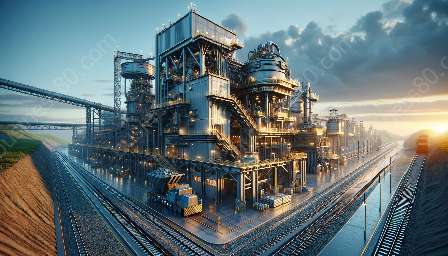Aluminum oxide, also known as alumina, is a vital material in the metals & mining industry. Its production is closely connected to aluminum mining, and the entire process involves several stages from extraction to refining. This article covers the production process, its significance, and its relationship to aluminum mining.
The Significance of Aluminum Oxide in Metals & Mining Industry
Aluminum oxide plays a crucial role in the metals & mining industry. It is widely used in various applications, including the production of aluminum, as an abrasive material, and in the manufacturing of refractories, ceramics, and catalysts. Due to its diverse uses, the production of aluminum oxide holds significant importance in the overall metals & mining sector.
Connection to Aluminum Mining
The production of aluminum oxide is intricately connected to aluminum mining. Aluminum is one of the most abundant metals in the Earth's crust, but it is always found in combination with other minerals, most commonly as bauxite. The first step in the production of aluminum oxide involves the mining and extraction of bauxite ore, which is the primary source of aluminum.
Aluminum mining typically involves open-pit or strip mining methods, where large areas of land are excavated to extract the bauxite ore. The extracted ore is then transported to a processing plant for further refinement.
The Process of Aluminum Oxide Production
The production of aluminum oxide involves several key stages, starting from the mining of bauxite to the final production of alumina. The process can be summarized as follows:
- Bauxite Mining: The first stage involves the extraction of bauxite ore through mining methods such as open-pit mining.
- Crushing and Grinding: The extracted bauxite ore is crushed and ground into a fine powder to facilitate the extraction of alumina.
- Bayer Process: The crushed bauxite is then subjected to the Bayer process, which involves the extraction of alumina (aluminum oxide) using a chemical process.
- Alumina Refining: The extracted alumina undergoes refining processes to remove impurities and transform it into aluminum oxide, which is the final product.
- Utilization: Aluminum oxide is utilized in various applications, such as aluminum production, ceramics, and abrasives, contributing significantly to the metals & mining industry.
Environmental and Economic Impact
The production of aluminum oxide, like any mining and processing activities, has environmental and economic implications. As with all mining operations, careful consideration of sustainable practices and environmental impact assessments are crucial to minimize the effects of mining and processing bauxite. Additionally, the production of aluminum oxide has economic implications, as it contributes to the overall economic growth through its diverse applications in various industries.
Conclusion
Aluminum oxide production is an indispensable part of the metals & mining industry, closely associated with aluminum mining. The process of producing aluminum oxide from bauxite involves several crucial stages, and its significance in various industries cannot be overstated. As the demand for aluminum and related materials continues to rise, the production of aluminum oxide remains pivotal in meeting these demands while ensuring sustainable practices in the metals & mining sector.

